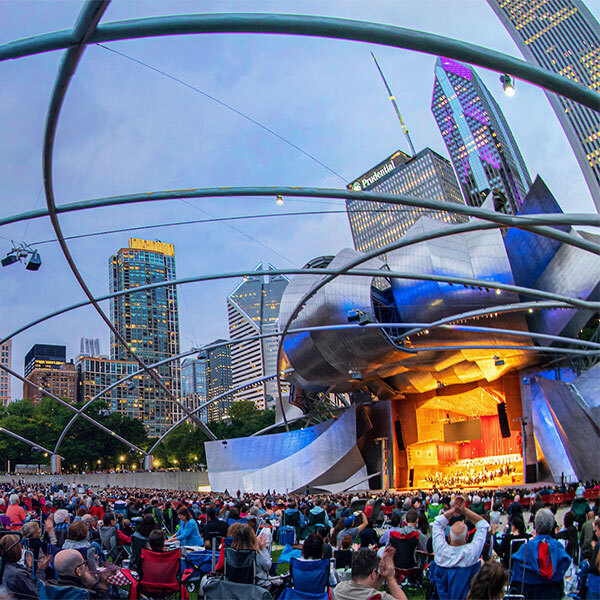August 29, 2025
Postcards from Enrique: Wyoming and Colorado
Following engagements in Japan, Italy, France, and Germany (with just a bit of vacation mixed in), Music Director Enrique Mazzola finished his busy summer with something new — debuts on the podiums of two of the United States’ leading summer festivals. Here, as the final in our series of long-distance conversations, a dispatch from Jackson Hole, Wyoming, and Aspen, Colorado.
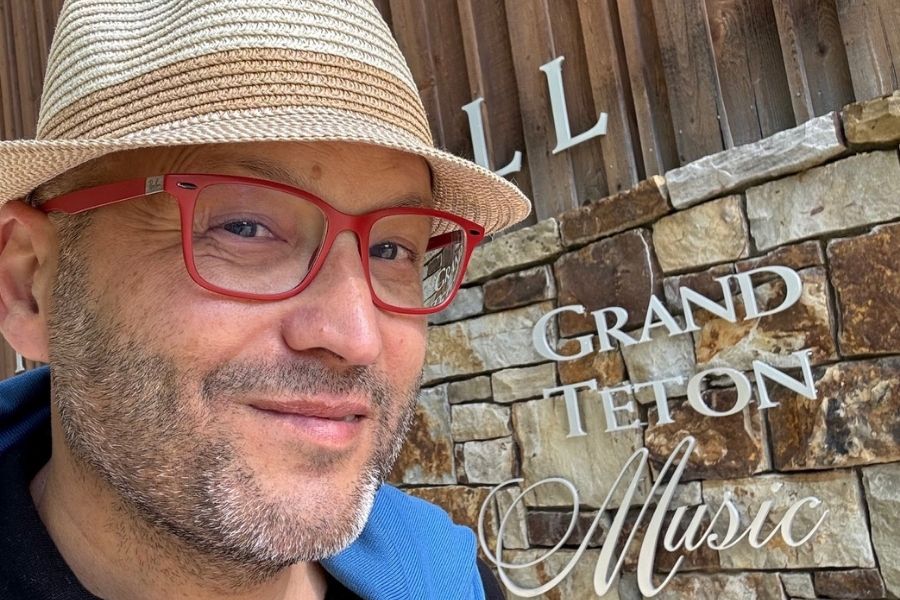
Maestro, you’ve had a summer absolutely full of travel and concerts.
I had a couple of days and evenings at home in Chicago. But really, I've been away from Chicago since the end of April.
You just performed Tchaikovsky’s 6th symphony, the “Pathétique,” with the Grand Teton Music Festival Orchestra. What do you make of the piece?
In a way, Tchaikovsky is a composer very near to me. I did the cycle of all the symphonies with Orchestre national d'Île-de-France, so it's a symphony I know very well. For a conductor like me, it's a marvelous piece because even without an actual program, there is a story to tell inside. And apparently, Tchaikovsky himself wanted the symphony to contain a dramaturgical element.
Fascinating.
I really dug around on this, to prepare myself. Apparently, the work begins with the moment you start to have feelings — the excitement, this full-of-life moment that is falling in love. Then comes a separation, and in the last movement an abandonment.
But who knows? We have to find an interpretation for the death or loss of the person in the last moment. In effect, in the first movement, it's like you build something. The second moment is a dance. The third moment is a scherzo that becomes a march of victory. And then the last is filled with a sentiment of sadness, of loss. I really treated the symphony in this way, trying to imagine the narrative inside the music. The orchestra really responded in the most beautiful way.
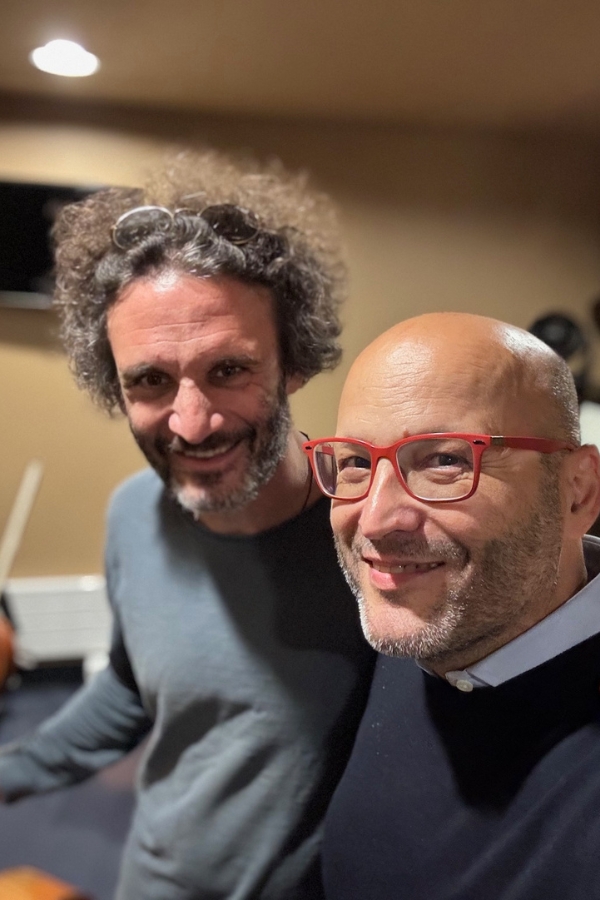
Enrique with cellist Nicolas Altstaedt in rehearsals at Grand Teton Music Festival.
You had a less common piece on the program as well, Schelomo, Hebraic Rhapsody by Ernest Bloch, scored for orchestra and cello. Is it a kind of concerto?
It is. And again, something that was really fascinating is that Bloch originally wanted to write this piece for voice and orchestra. Then he met a fantastic cellist. That's why basically it's like conducting a concert for voice and orchestra, with this unusual combination of canticles from Hebrew music and other influences. It's based on imagined musings of King Solomon. We worked very, very, well with Nicolas Altstaedt, the cellist. I know Nicolas very well, and I wanted him to play with us in Paris, though it never happened. We both couldn't wait to work together and this was the right moment.
And the evening started off with the overture to Verdi’s La Forza del Destino. You must be quite familiar with it.
There is so much force in La Forza — so many contrasts of poetic phrases, dreams, and tragedy in this overture. In a way it is based on a half tone, because the moment that gives pathos to the music is this crescendo/diminuendo on a half tone that offers a sense of the tragedy.
Right from the start.
Yes. There is a big call in the beginning from the brass, and then begins a stream that stops on the half tone every time. You feel immediately that this is Verdi. From the very beginning, he is telling you something is not going well.
Is it a difficult opera to produce?
Well, it’s one of the big Verdi titles. We can quickly mention Aida, Otello, Don Carlos, La Forza — these are large-scale, unique works, quite often performed by big opera houses like Covent Garden, Opéra de Paris, Berlin. I really would like to bring this title to Lyric.
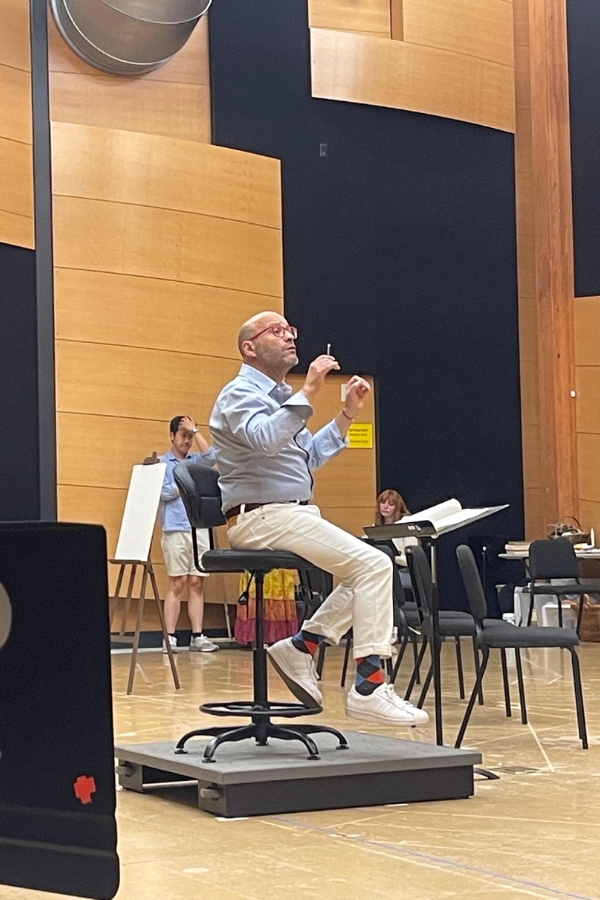
Enrique rehearses Puccini's La Bohème at Aspen's Bucksbaum Campus before they move to the main stage.
You are at the Aspen Music Festival now, about to do a one-night-only La Bohème. Is it partially staged?
Very semi-staged. The orchestra is on stage, and next to and a little bit behind me there is all the action, with costumes, sets, props, chairs for the Café Momus, Mimì’s bed, the stove, chairs. And of course Matthew Polenzani.
Is Bohème in your bones by now — in your soul?
Very much. I couldn’t even say how many times I heard Bohème before I was seven. That’s when I joined the children's chorus of La Scala, and of course, it was one of the operas in our repertoire. And when I say “our,” I mean the children's chorus. We have our scene: Here are the toys of Parpignol! And following Parpignol, there is, of course, a swarm of kids running behind the small carriage: I want a trumpet, I want a horse, I want a bear, I want this, I want that. It's not particularly difficult, but the articulation of the orchestra and the articulation of the children's chorus follow the same pattern. So you have to be absolutely, perfectly with the orchestra. You cannot be a little bit free, a little bit ahead, or a little bit behind. I remember Carlos Kleiber’s magnetic eyes and half smile conducting this moment with the kids, which, in a way, is a funny parenthesis inside the love story between Rodolfo and Mimì.
You put that so perfectly, because when it’s done well, it can be very charming.
Of course — super charming and unexpected. I was in the famous, filmed Zeffirelli production. It was a two-level stage, and we were instructed to run everywhere and to bother anyone except the soloists. So we could jump on a chorus member. We could pretend, for example, that a chorus member was our father or our mother or our uncle or a friend of our parents, or we could pretend to be lost in the Latin Quarter, or we could, for example, find a colleague in the children's chorus and play cards or jacks on the floor. The important thing was that at the first call — because “Ecco i giocattoli di Parpignol” comes twice — we should stop whatever and run backstage, because then he would enter and we would follow.
I can’t imagine many of that gang stayed in opera as you have.
My colleagues? What is curious is that through social media, I found several of them and they have found me. Yes, they do different things in life now, but they like to follow me and to see what I am doing. When, for example, I conduct an opera that we did together as children, they send me a message: Enrique, do you remember when we did this? It is a celebration of beautiful times together, of companionship, of playing a big game — because we were seven or eight. We were extremely professional. But we were taking it all in like a funny, beautiful game.
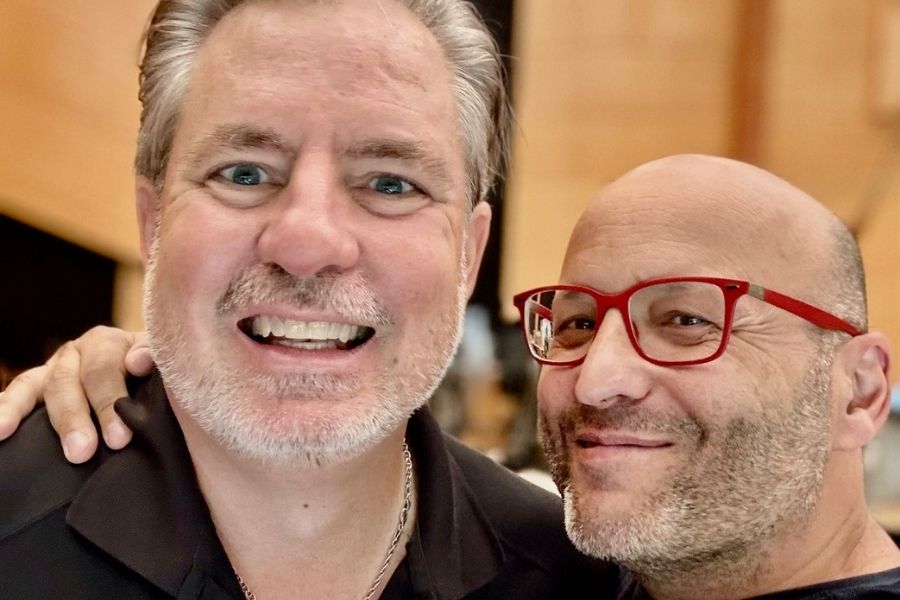
In Aspen, Enrique smiles with tenor Matthew Polenzani, an alumnus of The Patrick G. and Shirley W. Ryan Opera Center.
It must be fun to work with the children there in Aspen.
Of course. It's curious, like a circle for me. I was there, and then here. If Kleiber had a half smile, I have a full smile when I conduct the children.
Kleiber really was a titan, wasn’t he?
Yes. Kleiber didn’t have a vast repertoire — a few operas and also a few symphonies. But in that small set, he was a master. You could see and hear the level of freedom, the flexibility of rubato that he applied to Bohème. You can decide to conduct Bohème in the easy way, trying to be as much in tempo as possible, or you can try to conduct Bohème as Puccini wrote it. So many times it's written affrettando, going a little bit faster. So many times, it's written rallentando. So many times it's written con la voce, with the voice.
Meaning there's expressiveness prescribed in the score itself.
Going faster, going slower, going with the voice. In fact, sometimes at the same time: the going faster is just two seconds, and then the going slower, maybe 10 seconds. And then you have two more seconds of going faster. Of course, you can try to apply yourself to this in a very logical way, but that can become mechanical. The secret is to know the opera very well. You asked if I have Bohème in my bones. I would say the only way to conduct Bohème is to have Bohème in your bones.
Who are your leads?
They are all young singers from the Aspen Opera Theater and VocalARTS program, except for Matthew Polenzani, our Rodolfo, who joined us a few days ago. Matthew is with the group to give advice, to give breadth to the lines he sings with the others, to be part of the Aspen experience. Professionals from all over the world come here to spend time with young artists, to talk about how we make opera today — what is needed, what is better to do and not to do, how to breathe, how to build a phrase, how to stay in time with the orchestra. The orchestra is built in the same way; some of the principals come from different major American orchestras, and all the others are students.
In some ways you and Matthew are sharing the traditions of Bohème.
Last week, I did a master class with a group of young conductors. You know I'm happy to pass my experience on to young batons. What I love is that at every single rehearsal I see some of them sitting in the back, and afterward they come with a score asking me about how to do this, how to do that. There are no books for some of this. You cannot take a book and learn about the traditions. You can only hear a recording, you can speak with artists, and try to learn about the significant mysteries of Italian operatic tradition.
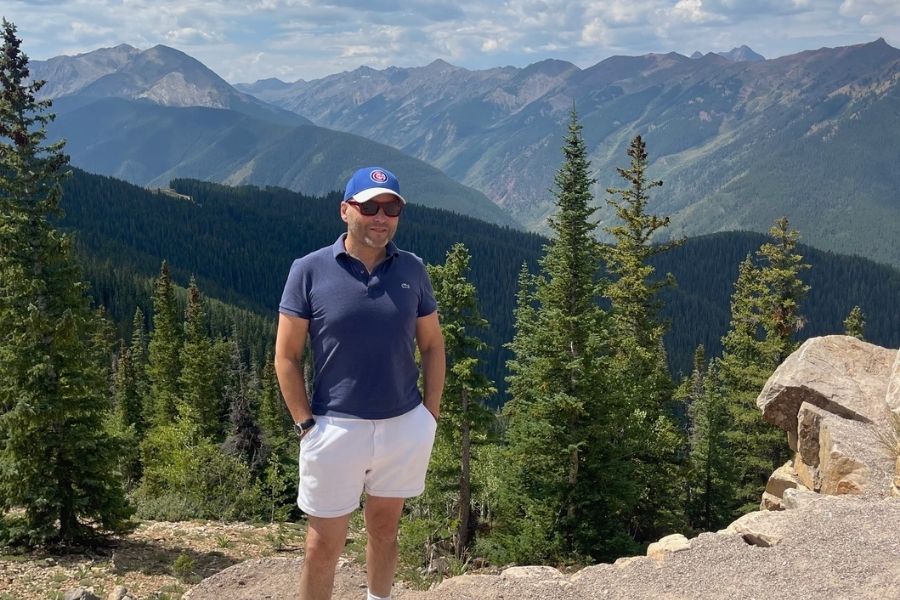
Wyoming and Colorado: As a European, what has been your impressions of the mountains?
Well, I didn’t see much of Jackson Hole because I had rehearsal almost all day, every day. I had the opportunity to take the Silver Queen gondola, which goes to the top of Aspen Mountain. It's a magnificent and quite long ride, I think 18 minutes to the peak. The views are really fantastic and fascinating.
Do you compare it to the Alps at all?
Maybe here in Colorado a little more than in the Grand Tetons. There, the mountains come up from this vast plain, and you see sky for hundreds of miles. Here it’s more a closed valley — it reminds me of Austria. Also, here in Aspen, a lot of shops, restaurants, and streets use Alpine names.
You’ve had a very busy summer.
I have indeed. I mean, just with the Pathetique, Shelomo, and Bohème, it's quite an intense summer. I'm very happy about it — happy to have had time to discover more of America — but I am really ready to come back to Chicago.
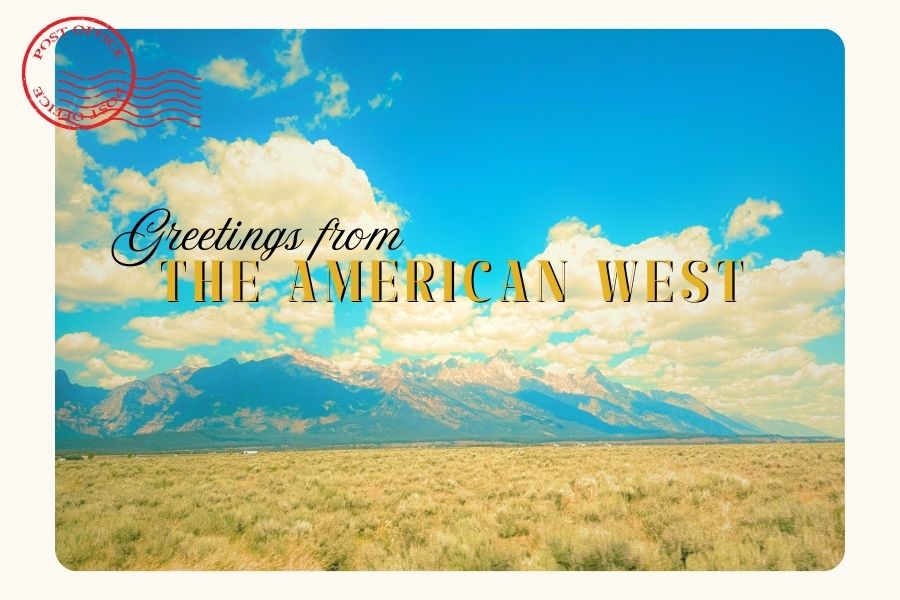
Read about Enrique's summer adventures in Tokyo, Paris Montepulciano, and Berlin from Lyric Lately and follow Maestro Mazzola on Instagram, TikTok, and Facebook for even more behind-the-scenes fun. Don't miss Maestro Mazzola's first appearance of Lyric's 2025/26 Season at Millennium Park for Sunday in the Park with Lyric on September 7.

